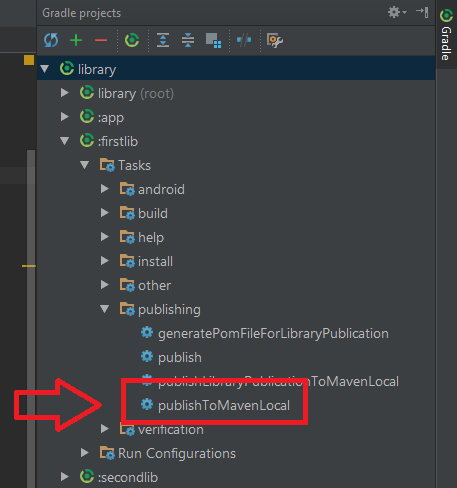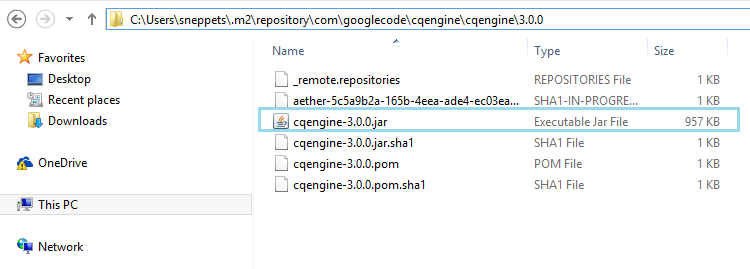

#Maven install dependencies locally how to#
We’ll demonstrate how to best set up your Maven goals to maximize the use of the dependency cache. This guest post by Julio Capote of packagecloud will show you how to use CircleCI’s caching along with packagecloud to keep your Maven builds as fast as possible.įor this example, we’ll setup a basic Maven project on CircleCI that deploys our artifacts to a Maven repository hosted by packagecloud. This works especially well for Maven builds, which typically spend most of their time resolving and downloading dependencies. One of CircleCI’s features is a persistent dependency cache that saves time on any subsequent builds. Try searching in our docs or on the blog for current information.
#Maven install dependencies locally code#
Lightweight mode works best when you need a quick-start and lightweight environment to work with your source files, for example, reading source code, navigating among source code and JDK, viewing outline and Javadoc, and detecting and fixing syntax errors.Note from the publisher: You have managed to find some of our old content and it may be outdated and/or incorrect. With lightweight mode, only source files and JDK are resolved by the language server with standard mode, imported dependencies are resolved and the project is built by the language server. VS Code for Java supports two modes, lightweight and standard.

In this way, bar-src.jar is attached to bar.jar as its source. The setting has following format: "" : [ You can map them to your local installation paths via the setting:. You can export your build to JAR from the projects view or by running the command Java: Export Jar.Īs Java evolves, it's common that developers work with multiple versions of JDK. This command helps to import new projects into the workspace without the need to reload the VS Code window. When you add a new module into your projects, you can trigger the command Java: Import Java projects in workspace to import them to your workspace. VS Code for Java will detect your projects and import them automatically. (Make sure the opened folder contains your build tool scripts, for example, pom.xml or adle). You can directly import existing Java projects and modules to your workspace through File > Open Folder. During creation, VS Code will facilitate installing required extension(s) per your project type, if the extension(s) weren't already installed. in Command Palette ( ⇧⌘P (Windows, Linux Ctrl+Shift+P)). You can create a new Java project by clicking the + button in the navigation bar, or through the command: Java: Create Java Project. There are also many useful features in each node's context menu, you can right-click on the node in Explorer to toggle it out. You can find buttons next to the nodes in the Explorer, which provide useful shortcuts for some actions. For example, you can switch between hierarchical view and flat view. In the overflow button of the navigation bar, there are more options to use. button in the EXPLORER title bar and select Java Projects. The Java Projects view helps you view your Java projects and their dependencies, and provides entry points for project management tasks.īy default, the Java Projects view is displayed below the Explorer view.

To get the complete Java language support in Visual Studio Code, you can install the Extension Pack for Java, which includes the Project Manager for Java extension.įor details on how to get started with the extension pack, you can review the Getting Started with Java tutorial. It also helps you to create new Java projects, packages, and classes. The Project Manager for Java extension helps you to manage your Java projects and their dependencies.



 0 kommentar(er)
0 kommentar(er)
